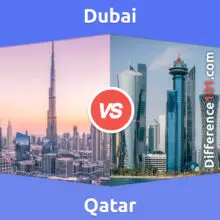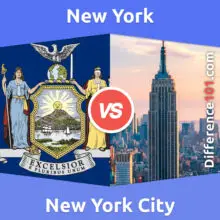Some people may use the terms “town” and “city” interchangeably, but in reality, there are significant differences between the two. While the differences between towns and cities may seem straightforward, they can have a significant impact on the people who live and work there. The size and complexity of a city often bring with it more opportunities and amenities, but also greater challenges in terms of traffic, pollution, and crime. Towns, on the other hand, may offer a more relaxed pace of life and a stronger sense.
Table of Contents
What Is Town?

A town is a human settlement that falls somewhere in between a city and a village in terms of size and population. While smaller than cities, towns usually have their own local government, which is responsible for managing the town’s affairs and providing essential services such as waste management, water supply, and public safety. Towns typically have a well-defined central area with commercial, residential, and industrial zones. They may have limited infrastructure, including transportation networks and public amenities, but are often more organized and cohesive than villages. The size of a town can vary significantly depending on the region, country, and local circumstances.
What Is City?

A city is a human settlement that is larger than a town and typically exhibits a higher population density, greater diversity of economic activities, and a more complex social and political organization. Cities are often the centers of economic, social, and cultural activity, providing residents with access to a wide range of social services, public transportation, and architectural landmarks. From bustling financial districts to lively residential neighborhoods, cities are characterized by their diversity of architecture, people, and ideas. The complex social and economic relationships in cities often give rise to complex political organizations, including municipal governments, city councils, and mayors. Ultimately, cities play a vital role in shaping and driving human society as we know it today.
Key Differences Between Town And City
The primary difference between a town and a city lies in their size and level of complexity in social and political organization. A town typically caters to a smaller population, generally ranging from a few hundred to a few thousand individuals. It has its own local government that is responsible for providing basic amenities like water supply, waste management, and public transportation. In contrast, cities accommodate higher population densities and exhibit more diverse economic activities. They have complex social and political organizations and are usually the center of trade, commerce, and industry. Cities offer a broad spectrum of services to their residents, including advanced healthcare facilities, educational institutions, multi-layered governance systems, and an overall higher standard of living.
- Towns are usually located in rural areas.
- Towns are usually on a smaller scale than cities.
- Town is smaller and has a lower population density.
- Town has fewer businesses.
- Town has fewer entertainment options.
- Town has a less diverse population.
Town vs. City Similarities
Towns and cities share several similarities when it comes to their functions and characteristics. Both refer to human settlements that are inhabited by people and share common infrastructural features such as residential buildings, public spaces, commercial areas, and public services. They both have their own local government, with an elected council, and administration staff responsible for managing day-to-day affairs. Additionally, both towns and cities may have access to transportation networks, like airports, railways, and highways, that connect them to other nearby settlements or destinations. They both play crucial roles as centers of social and economic activity, with opportunities for education, employment, and entertainment.
- Both refer to human settlements that are inhabited by people and share common infrastructural features.
- They both have their own local government, with an elected council, and administration staff.
- They both play crucial roles as centers of social and economic activity, with opportunities for education, employment, and entertainment.
Town vs. City Pros and Cons
Town Pros & Cons

Town Pros
A town, as a type of human settlement, offers many advantages to its residents. Firstly, it provides a sense of community and belonging, with opportunities for social interaction and networking. Secondly, towns often have a more diverse range of amenities and services compared to villages. This includes access to healthcare, education, shopping and entertainment options. Additionally, towns offer more job opportunities and economic growth potential compared to rural areas. They also provide more efficient public transportation, making it easier for residents to commute or travel. Finally, local governments in towns are better-equipped to respond to the specific needs of their communities and ensure the provision of essential services. Overall, towns provide a desirable balance between city living and rural tranquility.
- The Town has its own government, which means that residents will be able to solve their issues by themselves.
- People are friendlier.
- There’s a smaller crime rate.
- Towns are safer, quieter, cleaner.
- Less traffic and more room.
- Towns are closer to nature.
Town Cons
Towns as a type of human settlement offer several advantages, such as social cohesion, job opportunities, and access to basic amenities. However, there are several disadvantages and cons to living in towns. One of these is the lack of privacy and space due to high population density, leading to noise pollution and limited access to public green spaces. Towns also suffer from traffic congestion, inadequate infrastructure, and limited healthcare facilities. Additionally, the limited economic base of towns often results in a lack of higher-paying jobs and professional opportunities, leading to economic stagnation and poverty. Despite efforts to address these challenges, towns still face significant obstacles in realizing their full potential as vibrant and sustainable communities.
- The limited economic base of towns often results in a lack of higher-paying jobs.
- The infrastructure is underdeveloped, which means, there is no proper infrastructure.
- The limited number of employers.
- Transportation is difficult.
City Pros & Cons

City Pros
Cities are the ultimate symbol of human achievement in the organization and efficiency of living spaces. There are several advantages of living in cities, including increased access and availability of resources such as food, water, and electricity. Higher opportunities for employment, education, and social mobility are also common benefits of living in cities. Furthermore, cities offer a greater variety of cultural activities such as museums, theaters, and sporting events. In large metropolises, a myriad of goods and services can be easily found, and transportation and communication are highly developed. The social and political organization of cities enables residents to participate in public decisions and engage in civil conversations. Ultimately, the convenience, variety, and diversity of cities make it an appealing option for people looking to settle in a vibrant and thriving community.
- The economic activities of a city include banking, insurance, retailing, food services, transportation, telecommunications, tourism, and entertainment.
- The city has a municipal government and a mayor, courts, a police force, a fire and rescue service, and schools.
- Cities provide greater job opportunities.
- Cities provide greater educational opportunities.
- Cities provide greater social mobility.
City Cons
While cities offer many benefits such as access to education, employment opportunities and cultural experiences, they also come with a range of drawbacks. Firstly, urban living generally incurs higher costs for housing, food, transport and healthcare. Additionally, with high population density comes more pollution, traffic congestion, and noise, which can negatively impact health and wellbeing. Cities can also be associated with crime and social isolation, as people often live in close proximity without truly connecting with each other. Furthermore, the complex social and political organization within cities can lead to bureaucracy, corruption, and inequality. Overall, while cities offer many advantages, it’s important to consider the potential challenges and drawbacks before deciding to settle in one.
- Urban living generally incurs higher costs for housing, food, transport and healthcare.
- With high population density comes more pollution.
- Traffic congestion, and noise, which can negatively impact health and wellbeing.
- The complex social and political organization within cities can lead to bureaucracy, corruption, and inequality.
Comparison Table: 7 Key Differences Between Town And City
| Components | Town | City |
|---|---|---|
| Size | Towns are typically smaller than cities than in terms of population, geographical area, and infrastructure. | Cities are typically larger than towns in terms of population, geographical area, and infrastructure. |
| Density | Towns tend to be less densely populated than cities. | Cities tend to be more densely populated than towns, with higher concentrations of people living and working in smaller areas. |
| Infrastructure | Towns generally have less advanced infrastructure systems than cities, including public transportation, airports, hospitals, and other facilities. | Cities generally have more advanced and comprehensive infrastructure systems. |
| Economic activity | Towns often have less diverse job opportunities and higher average incomes. | Cities are often centers of economic activity, with more diverse job opportunities and higher average incomes. |
| Cultural diversity | Towns are less culturally diverse. | Cities tend to be more culturally diverse than towns. |
| Government structure | Towns may be governed by a select board, town meeting, or other forms of local government. | Cities are typically governed by a mayor and city council. |
| Social life | Towns may have a quieter, more tight-knit community feel. | The social life in cities can be more fast-paced and bustling compared to towns. |
Comparison Chart

Comparison Video
Conclusion: What Is The Difference Between Town And City?
In conclusion, towns and cities are both types of human settlements that differ in terms of size, population density, economic activities, social and political organization, and local government. While towns are smaller than cities, they often have their own local government and are characterized by a more community-oriented way of life. On the other hand, cities are bigger and more complex, with a higher population density and diverse economic activities. Despite their differences, both towns and cities are important centers of human activity and contribute to the development and growth of human societies.







